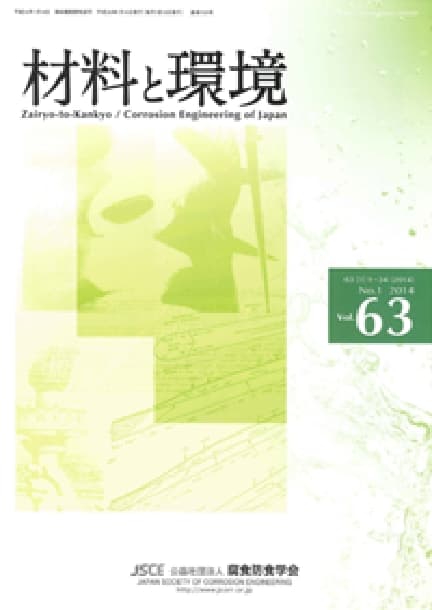Phosphonic acid is used as a corrosion inhibitor in cooling water in chemical plants. To determine the optimum conditions for its use, a corrosion test was carried out using a flowing solution, in conjunction with a jet-in-slit testing apparatus. An immersion test was also carried out for comparison. The test involved the exposure of carbon steel to a solution of amino-trimethyl phosphonic acid (ATMP) and zinc sulfate, to simulate industrial water. The anticorrosive effect was the highest at an ATMP concentration of 150ppm and a molar ratio of Zn2+/ATMP of 4, under flowing conditions, but, in the immersion test, this ratio was set at 2. In general, the presence of NaCl and NaClO accelerate corrosion, in that they function as anticorrosive agents, under both immersion and flowing conditions, when an inhibitor is present at optimum concentrations. The film that forms on the material surface is a complex film, consisting of ATMP and Zn2+. The presence of NaCl makes the film homogeneous and NaClO improves the adhesion of the film to the surface of the material, by affecting the early stage of film formation.










